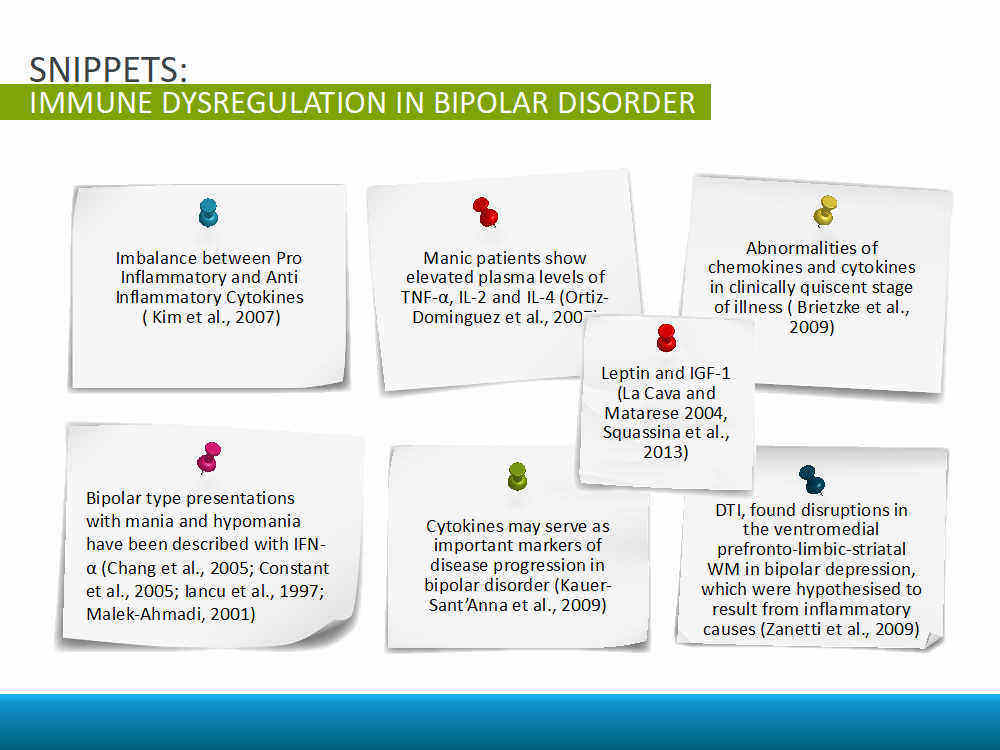Mental Illness
the immune System & the Endocrine System
|
|
Royal College of Psychiatrists TV Neuroinflammation & Psychosis (2018) |
|
Microglia: Immune Regulators of Neurodevelopment (2018)
Abstract Microglia, the tissue-resident macrophages of the central nervous system (CNS), have characterized roles in combating infection, clearing cellular debris, and maintaining tissue homeostasis. In addition to these typical immunological roles, microglia have been revealed to be active players in complex neurodevelopmental programs such as neurogenesis and synaptic pruning, during which they interact with neurons and macroglia to provide trophic support, respond to cytokine, and metabolic signals derived from the local neural environment, and drive the refinement of functional neuronal circuits. Microglia appear to be developmentally regulated by the host microbiome, and have been shown to dynamically respond to metabolic products from gut microbiota in a sex-dependent manner. Due to their constant surveillance of the brain parenchyma, involvement in development, and salient reactivity to both peripheral immune and microbiome-derived signals, microglia may additionally serve as a key cellular intermediate linking neurodevelopmental disorders such as autism and schizophrenia with microbiota influences in models of maternal immune activation (MIA). This review examines both well-established and emerging literature and perspectives on microglia in the context of neurodevelopment, with a particular emphasis on the role of the host microbiome in influencing microglial function during health and disease states. |
Affiliations
|
University of Cambridge (2014)
https://www.cam.ac.uk/research/news/mind-and-body-scientists-identify-immune-system-link-to-mental-illness
https://www.cam.ac.uk/research/news/mind-and-body-scientists-identify-immune-system-link-to-mental-illness
|
Affective Immunology Affective immunology: where emotions and the immune response converge Dialogues in Clinical Neuroscience (2017) <<Link "Recent compelling evidence has shown that the emotional and immunological systems share more than a similarity of functions. "This review article will discuss the crosstalk between these two systems and the need for a new scientific area of research called affective immunology. "Research in this field will allow a better understanding and appreciation of the immunological basis of mental disorders and the emotional side of immune diseases." Bioactive lipids as modulators of immunity, inflammation and emotions. Current Opinion in Pharmacology (2016) <<Link |
|
|
When The Immune System Attacks The Brain
- Antineuronal Antibodies Discovered in a Case of Mania "This video is about a clinical that provides further compelling evidence for the role of autoimmune mechanisms in the pathogenesis of psychiatric disorders and the need for vigilance for autoimmunity in psychiatric practice. "The poor response to psychotropics, followed by a good response to immunosuppressants, the presence of antineuronal antibodies indicates immune dysfunction and is consistent with synaptic encephalitis. "Dr. Sanil Rege is a Consultant Psychiatrist and co-founder of Psych Scene and Vita Healthcare." |
|
|

Neuroscience News (2018) In one of the biggest breakthroughs in schizophrenia research in recent times, Professor Cynthia Shannon Weickert from Neuroscience Research Australia (NeuRA) and UNSW Sydney has identified immune cells in greater amounts in the brains of some people with schizophrenia. https://neurosciencenews.com/schizophrenia-immune-cells-9867/ |
|
"Inflammation is the normal response of your body's immune system to injuries and harmful things that enter your body. "
https://www.aboutkidshealth.ca/Article?contentid=926&language=English |
"The Immune System Does Produce Behavior" -----------Prof Sir Robert Lechler, President of the Academy of Medical Sciences, United Kingdom The Telegraph BBC News goes to the Institute of Psychiatry, Psychology & Neuroscience, King's College London to find out about the latest research on inflammation and depression.
|
|
|
|
"The key issue . . . is what's driving the mental ill health is not so much a change in the brain, but a change in the immune system, an auto-immune disease that's causing the aberrant behaviour," ------------Professor Ian Hickie of the University of Sydney's Brain and Mind Centre, Australia ABC News Australia |
Integrated Physical & Mental Health:
Part 2 The Immune System & Some of the Latest Research on the Immune System & Mental Health |
endocrine system & Mental Illness
|
|
pnainfo (2010)
The Emotional Side of Pituitary and Hormonal Disorders |





